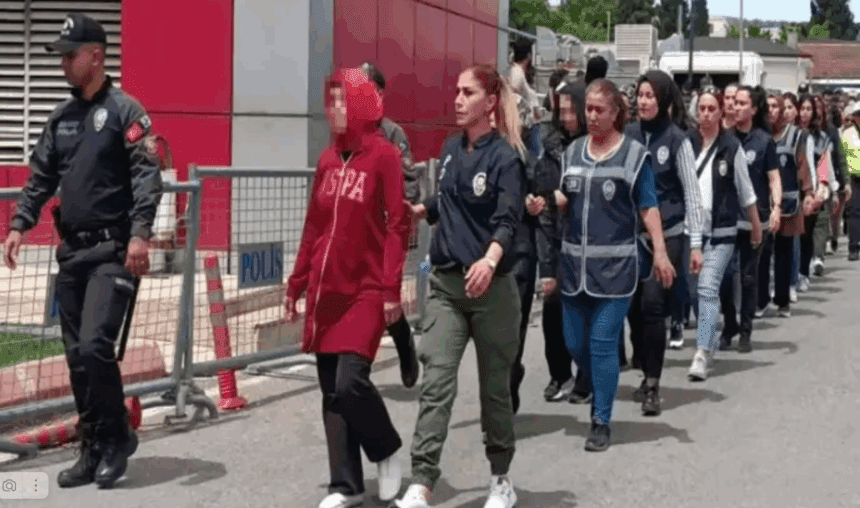Gaziantep, Turkey — Turkish authorities have jailed at least 77 individuals, many of them young female students, following a mass detention operation targeting alleged members of the faith-based Gülen movement. The arrests stem from a May 6 police sweep across 47 provinces, coordinated from the southeastern city of Gaziantep.
Interior Minister Ali Yerlikaya initially reported the detention of 208 people, most of them university students and recent graduates. That number later rose to 320, according to defense lawyers. Courts have so far ordered 77 into pretrial detention, while 125 others were released under judicial supervision with travel bans and regular police reporting requirements.
A leaked interrogation file, reviewed by Turkish and international media outlets, reveals that detainees were questioned about activities that legal experts say are protected under Turkey’s constitution. These include attending certain schools or dormitories, obtaining passports, traveling abroad for educational purposes, and using messaging apps like Signal or Jitsi. Prosecutors also focused on religious donations, cryptocurrency accounts, and whether detainees had attended summer camps in countries such as Bosnia, Georgia, or Iraq—trips that were legal at the time.
Among those jailed are students from prestigious universities, including Middle East Technical University (ODTÜ), as well as individuals with chronic health conditions. Ages range from 19 to 24.
Some detainees come from families already targeted in past purges. In one case, a young woman whose father was imprisoned and sister died of cancer was arrested in Denizli. Fourteen other female students from the same city were detained in related raids.
The operation also reached into the business world, including the re-arrest of former Naksan Holding executive Taner Nakıboğlu, who had previously served time following the post-coup emergency decrees. The government seized the company in 2016.
Interior Minister Yerlikaya released a video on social media that appeared to frame ordinary religious and educational activity as part of a broader terrorist conspiracy. The footage showed women in headscarves visiting homes, accompanied by claims that the suspects had organized “foreign education camps” and “international meetings.”
Critics denounced the arrests as politically motivated. Ömer Faruk Gergerlioğlu, a member of parliament from the pro-Kurdish DEM Party and a longtime human rights advocate, said the government was criminalizing basic freedoms. “In this country, traveling abroad has become a crime,” he said in a statement. “Where are you trying to drive these young people?”
Since a failed coup attempt in 2016, the Turkish government has pursued a relentless crackdown on alleged followers of the Gülen movement. While Ankara considers the movement a terrorist organization responsible for orchestrating the coup—an accusation the movement denies—no international body has officially designated it as such.
More than 705,000 people have been investigated over alleged links to the group, with over 13,000 still in prison or awaiting trial, according to Justice Minister Yılmaz Tunç. Human rights organizations including Amnesty International and Human Rights Watch have repeatedly criticized Turkey’s use of broad anti-terror laws to silence dissent and criminalize civil society.
Despite being a Council of Europe member and signatory to the European Convention on Human Rights, Turkey continues to face mounting criticism for eroding judicial independence and civil liberties. The latest wave of arrests suggests that the crackdown is not easing—even after the death of Fethullah Gülen in October 2023 at age 83.
Court proceedings are ongoing, and lawyers expect the number of pretrial detentions to rise in the coming days.



